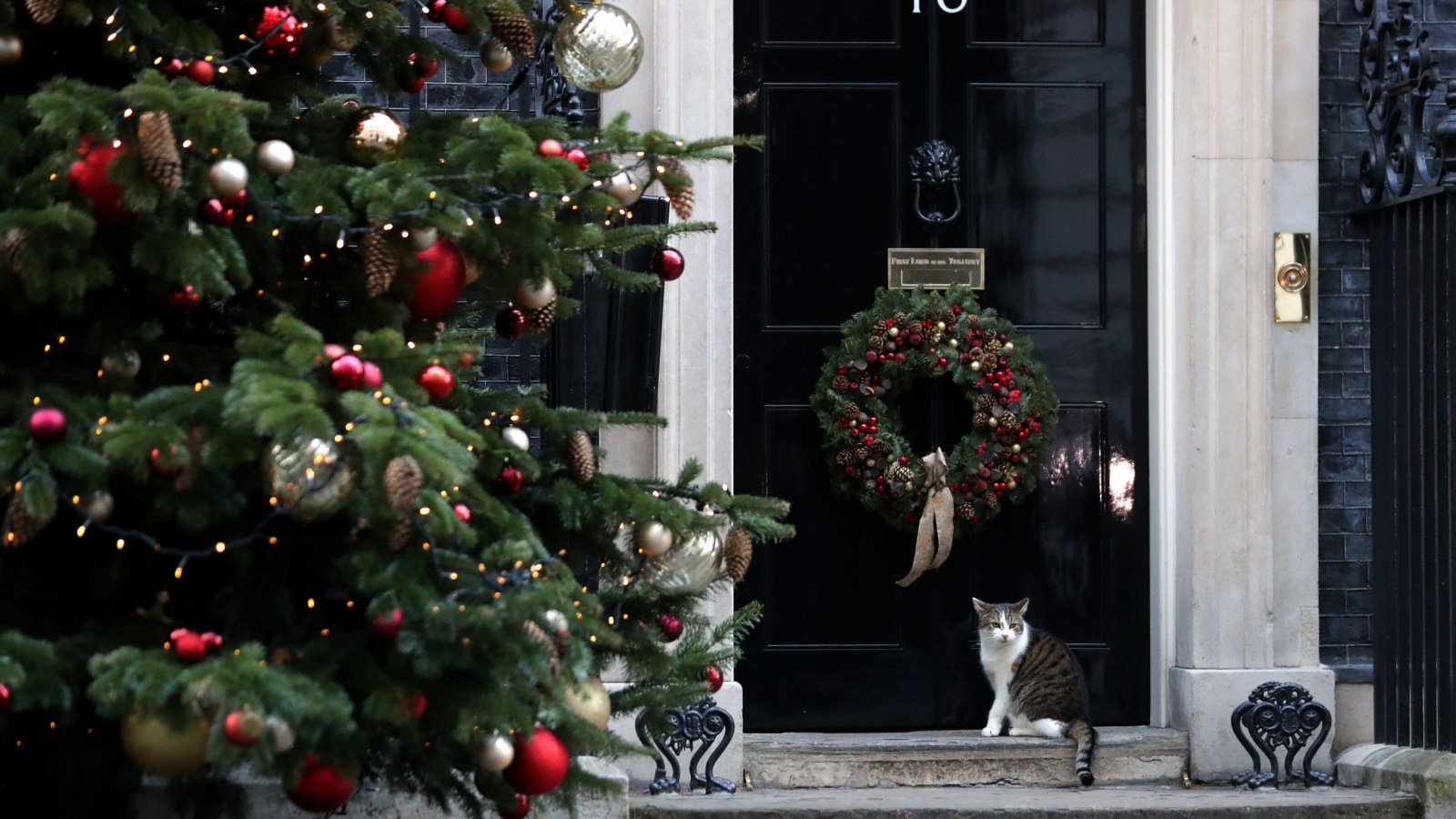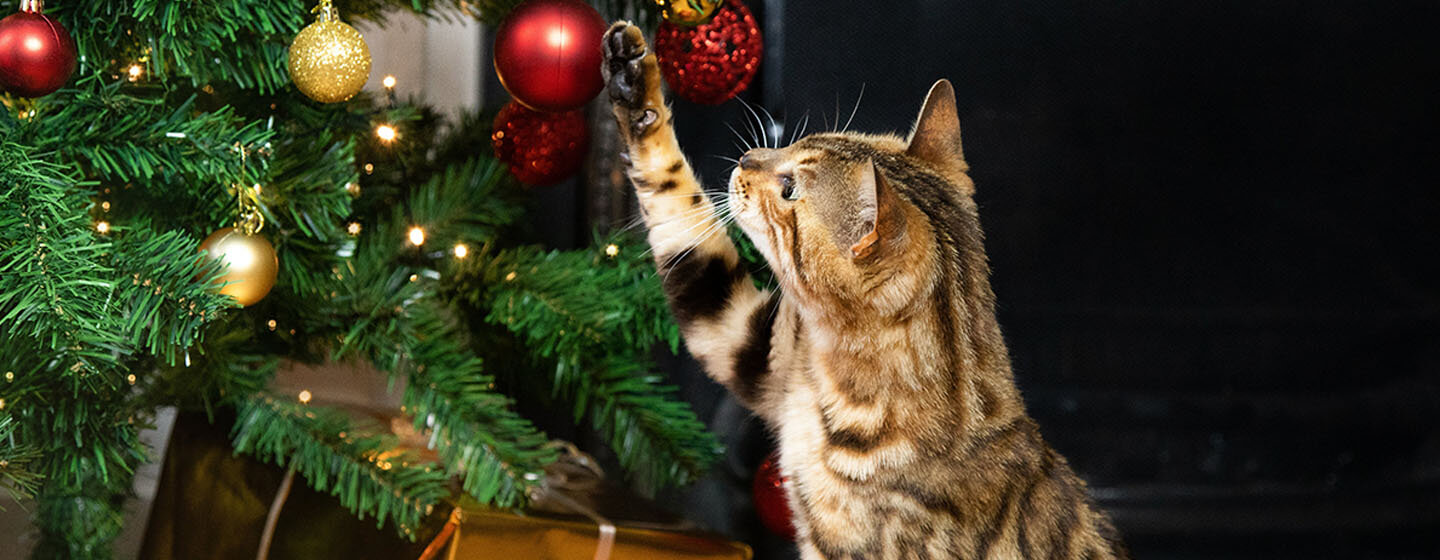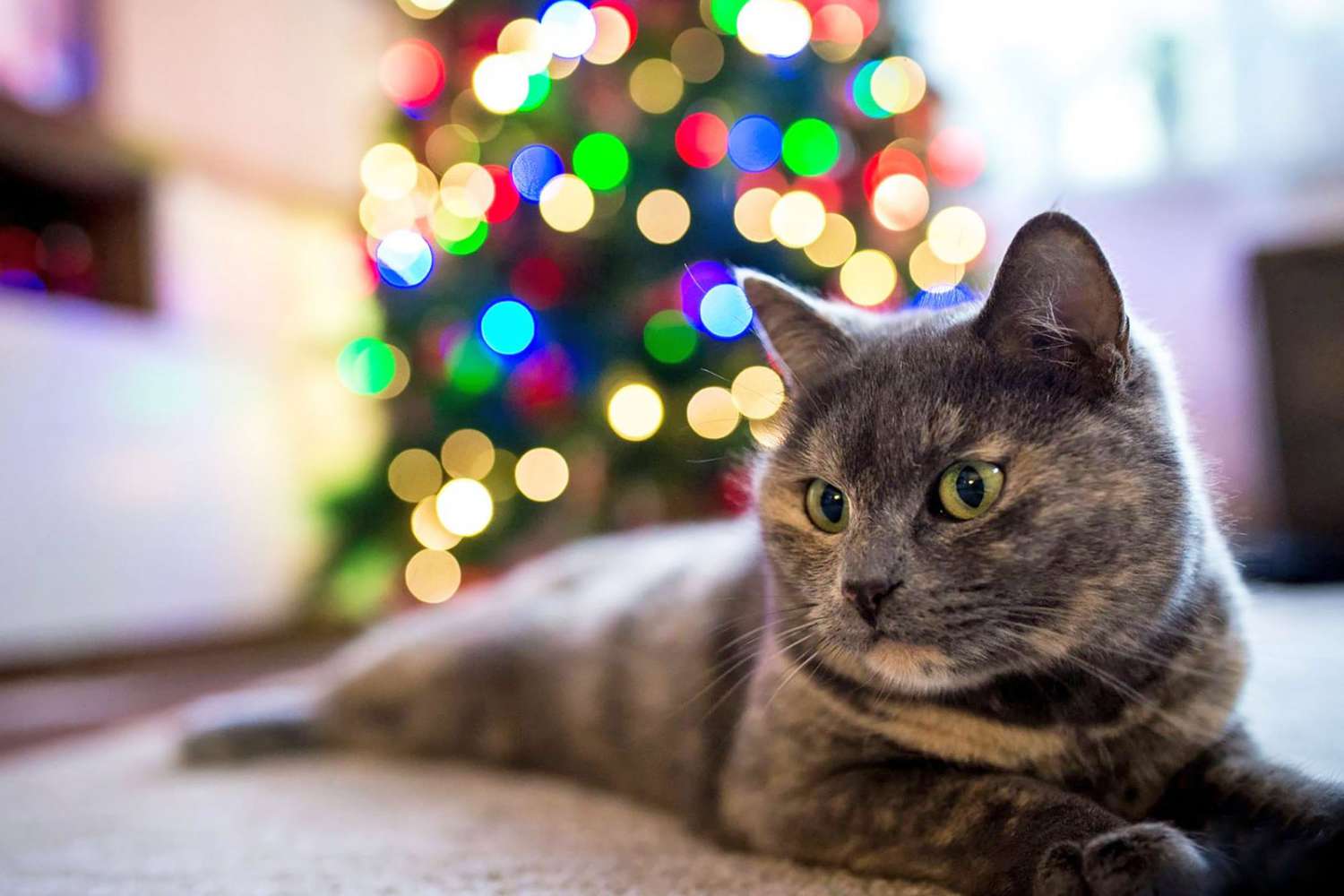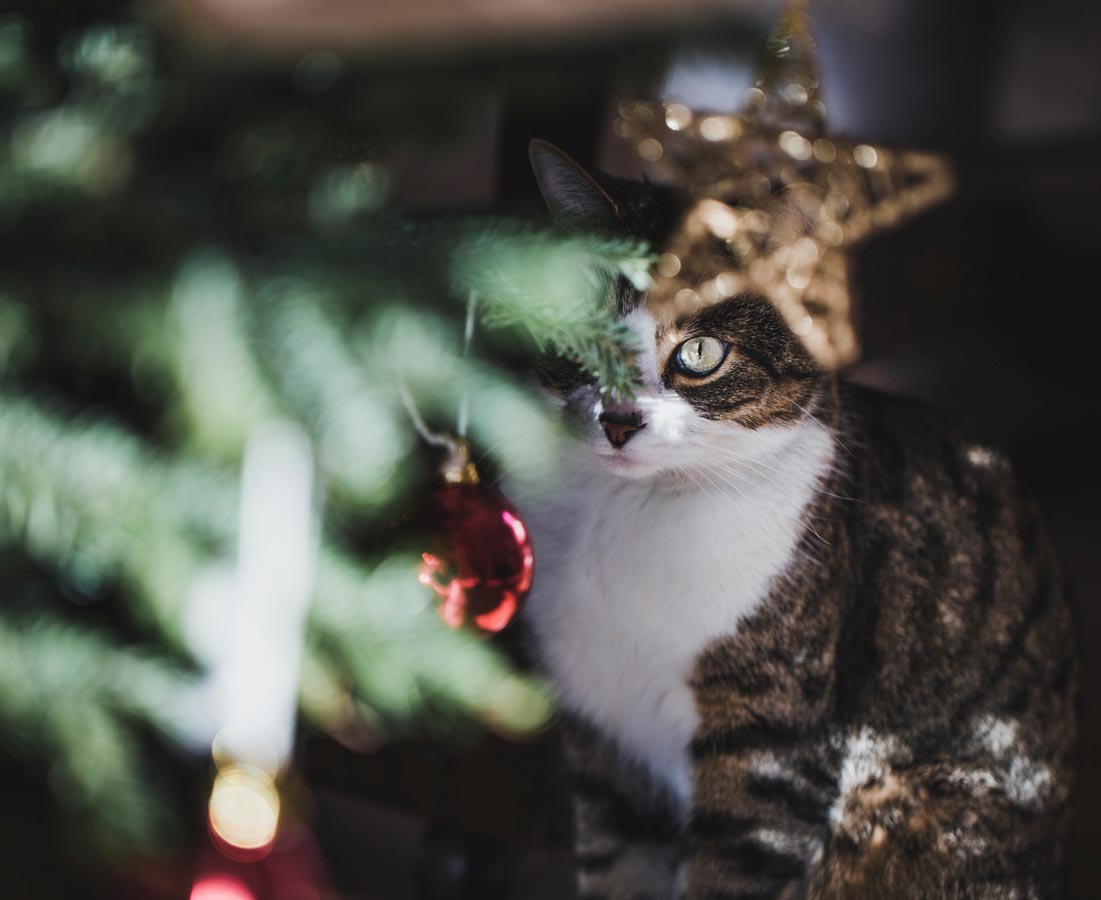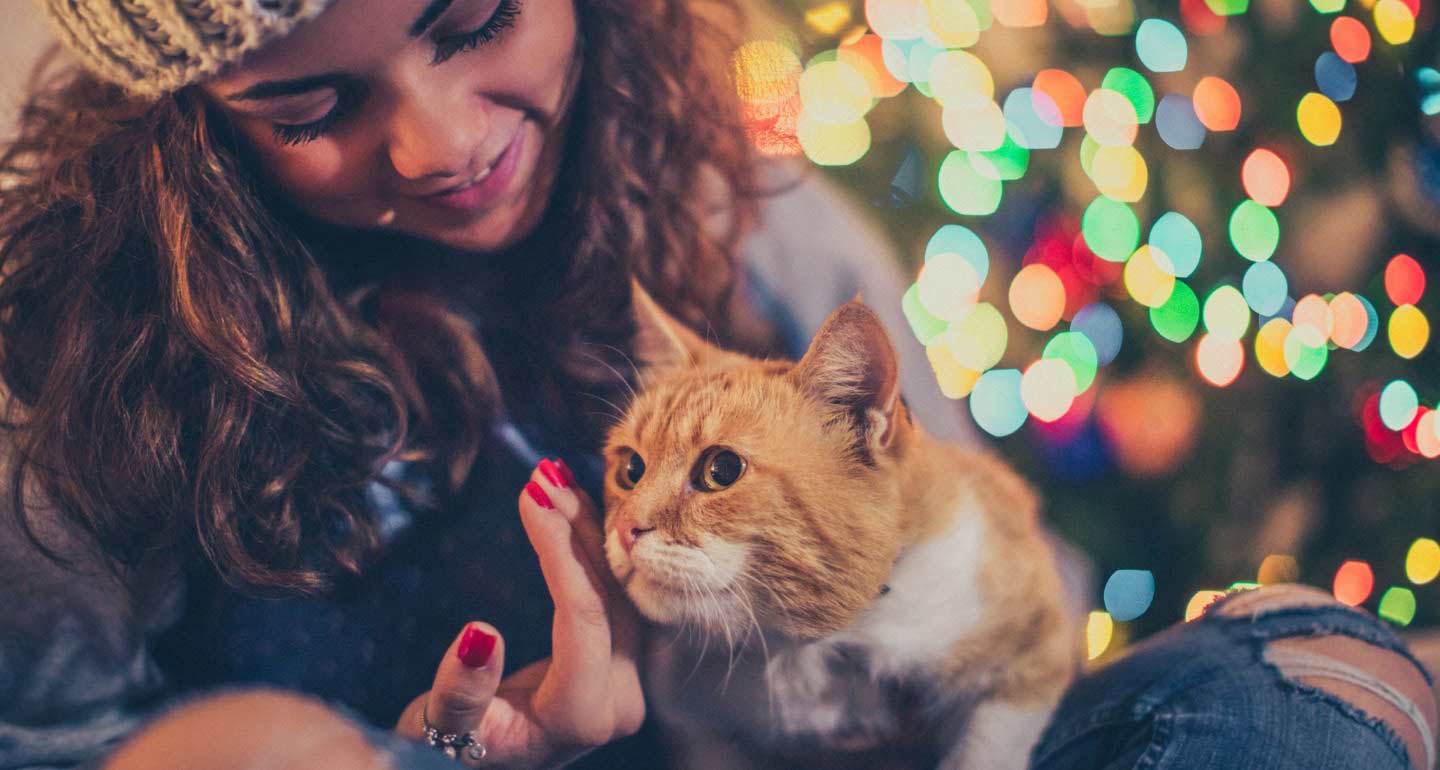Are Christmas Trees Toxic To Cats
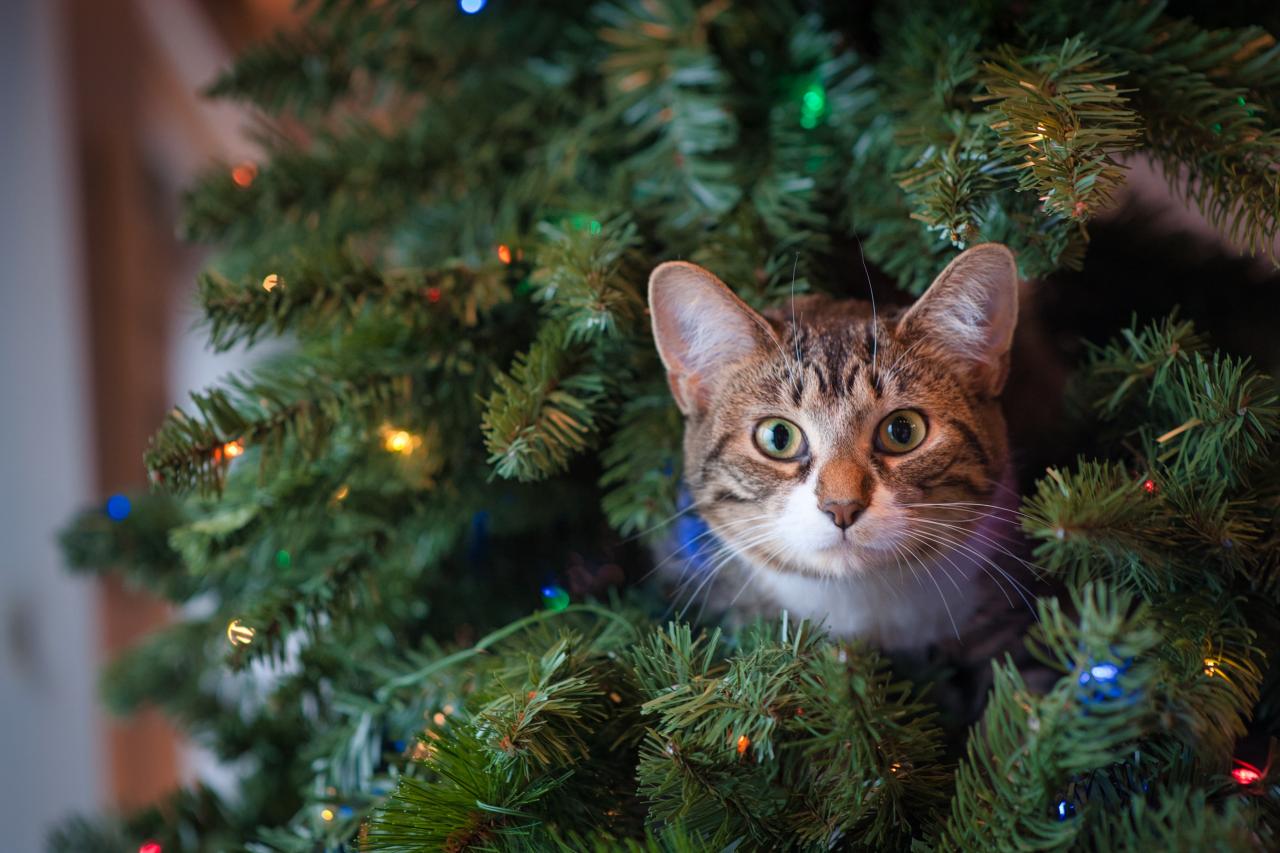
Real Christmas Trees Can Make Cats Sick.
Are christmas trees toxic to cats. Christmas trees are considered to be mildly toxic to cats. Christmas trees present a dangerous temptation to cats. As several others have mentioned both real and artificial trees can be mildly toxic to cats plus the needles can cause serious issues if swallowed.
The Holly Dazzle Tree Cats love to climb into the tree and peer out at everyone from their new safe hiding spot. Although the most common Christmas trees such as real pine or fir trees arent toxic to cats should your four-legged pal simply brush past it if your kitty should eat pine needles sap drink the water or chew on the branches you may find yourself in hot water. Other holiday plants that are poisonous to pets are the Poinsetta Plant which can cause nausea or vomiting but not death Mistletoe and Holly considered very toxic and if your pet eats these it is recommended to call poison control immediately and lastly although not really Christmas flowers Lilies and Daffodils these plants are very toxic to cats and cause.
However whether either of those are a concern depends on your cats. Now most cats arent going to find the taste of pine or fir to be appealing but it likely takes a nibble for them to figure that out. The tree needles are not easily digested either.
Even non-toxic Christmas copse still affectation a accident to cats. Fir spruce and pine trees make excellent Christmas trees but their oils can irritate your pets mouth leading to excessive drooling or vomiting. What Christmas trees are poisonous to cats.
Are flocked trees safe for pets. So how do you know if your cat is having a toxic. Houseplants and cut flowers are popular gifts at Christmas but lilies amaryllis and Christmas cactus all are known to be toxic or deadly to cats.
Though most cats typically will not eat the needles of a tree there are some cats that be curious enough to do so. The oils produced by some real Christmas trees are also mildly toxic if consumed causing minor irritation to a pets mouth and stomach. Answer 1 of 10.
